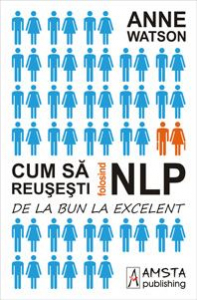Durata de livrare: 1-3 zile lucratoare
- Descriere
- Caracteristici
- Review-uri (0)
From a broader perspective, a highly competitive business environment requires highly skilled business people (negotiators, sellers, investors), able and willing to stay attuned to the values and behaviours of their customers, suppliers or business partners.
While stressing the importance of a global mindset for a company or corporation to succeed in the domestic and international marketplace, it is essential to acknowledge the necessity of watching our language, by recognizing the different levels of meaning in people's words (either vague or general), and constantly monitoring their reactions for feedback. Although managers may use the same words, phrases, terms (acronyms, company jargon) in communication, there can be significant differences in how these are understood or agreed upon.
In addition, not sharing the same 'frame of reference' can lead to unfiltered feedback in the context of listening likely to block our communications. To quote from Andrews' practical guide to Effective Communication (2015), "It is important that the language used for feedback is acceptable to the person being spoken to and appropriate for the circumstances. Not everyone has the same understanding of language, and certain words that mean one thing to a manager may mean something very different to a person receiving feedback [...] Successful managers avoid language that will cause confusion, and choose words that are universally understood" (Andrews 2015: 59). Just as it is naive to presume that all people understand the world and respond to the same words in the same way that we do, it is equally misleading to fall into the trap of holding stereotypes and assuming that a group's members share identical characteristics. The same guide remarks that: "Put aside any stereotypical views you may have; treat each person as an individual [...] Even individual mindsets can set up barriers, affecting what we understand and how we react to outside stimuli" (Andrews 2015: 13). Furthermore, it is significant to note that fighting such individual mindsets, i.e. holding stereotypes, can remove language barriers and provide an appropriate framework for constructive business communication.
An AparițIe: 2020
Editura: UNIVERSITARA
Pagini: 206
Isbn: 9786062810887
Colectie: Filologie
Format: 15x21 cm
Editie: Necartonata

![Business at Work, Company Communication Patterns Through Linguistic Lens de Cristina Mihaela Zamfir [1] Business at Work, Company Communication Patterns Through Linguistic Lens de Cristina Mihaela Zamfir [1]](https://gomagcdn.ro/domains/cartidesuflet.ro/files/product/large/res_1aee54c9e650b8f55df850bdfe81a017-13500-7847.jpg)



































